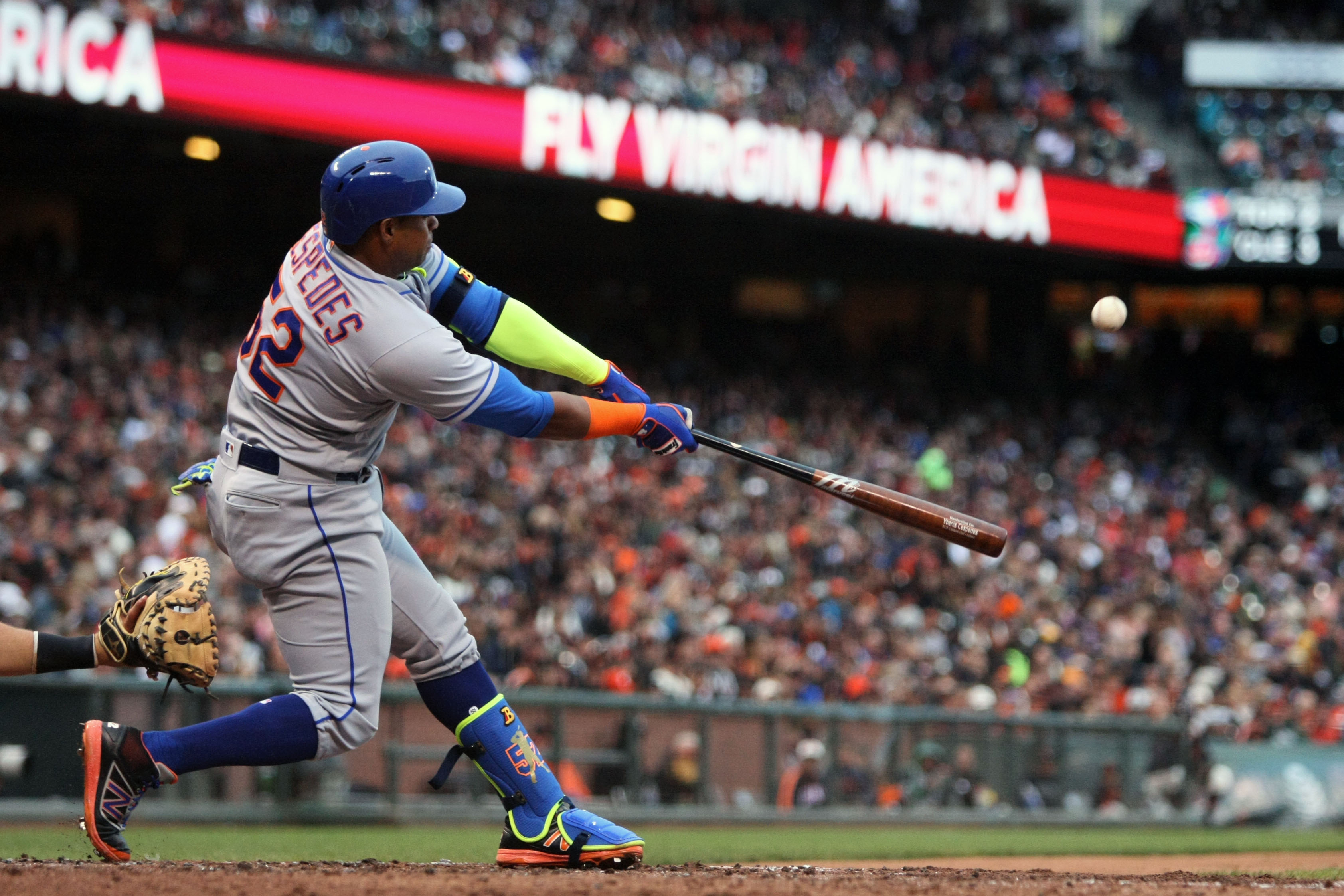This week, Yoenis Cespedes once again reiterated to Matt Ehalt of The Record that he will does not plan to opt out of his Mets contract after the 2016 season, as is his contractual right. He later clarified that while no final decision has been made, he’d like to remain a Met. Cespedes has been incredibly consistent on this, going back to his first public appearance after signing his three-year, $75 million contract in January: he doesn’t want to leave. And he certainly has the contractual right to stay. Yet, it seems like nobody believes him.
The Mets seemingly don’t believe Cespedes is any sort of lock for the 2017 roster. With Curtis Granderson and Michael Conforto already under contract, trading for Jay Bruce for 2017 reasons was suspect enough to begin with, but adding Cespedes back to the corner outfield mix creates the same sort of logjam that currently has Conforto in Triple-A and Granderson pretending to be a platoon centerfielder like it’s 2005 again. The Mets do have a failsafe on that too—Bruce’s 2017 salary is itself a non-guaranteed team option—but it’s hard to see the Mets parting ways with Bruce just a few months after trading for him, even if his batting average continues to hover well below the Mendoza Line.
The media clearly doesn’t believe Cespedes is prepared to opt in, either. Matthew Trueblood wrote an article on Monday at the main BP site where the entire premise was that not only would Cespedes “inevitably” opt out, but that he’ll be unlikely to stay again in free agency. All season long, various columns and free agent previews have assumed, fait accompli, that Cespedes would declare free agency barring a crippling injury or sudden inability to hit the baseball. Why else would he have asked for a frontloaded deal with an opt out, after all.
An opt out, even if you have no plans of leaving, is leverage. It’s leverage to influence how the team handles you. It’s leverage to influence how the team handles your surroundings. This is far more true if you’re a star player whose team would not be able to replace him, and sure enough, not only do the Mets not have internal options to replace Cespedes, the external options for a high-end position player this coming offseason are likely to stink. Few players in MLB have leveraged opt outs in this way, but it’s fairly common in other sports. Look no further than LeBron James, who has used the faint threat of leaving Cleveland every year to influence everything, including personnel decisions.
It’s also leverage to rework his contractual terms if he does want to stay. Cespedes, if he opts in under the terms of his current deal, will make $23.75 million per season base salary in 2017 and 2018, with a full no-trade clause. That’s good money—the $25 million per year he makes overall ties him for the ninth highest-paid player in baseball by average annual salary. But it’s almost certainly less than he’d make on the free agent market, probably not in annual salary, but in years.
Shouldn’t this all lead to a fairly easy compromise? Like Neil Walker, the Mets really cannot afford to lose Cespedes, hitting .295/.365/.570 entering Wednesday’s play. Cespedes, whether his plans to forego the opt out are real, shifting, or false, does genuinely seem to want to stay in New York. Given his troubles finding a home in last year’s free agent market, he might be eager to avoid another free agent fiasco. Adding two or perhaps three years onto Cespedes’ current deal at something around his current AAV might just be enough to entice him to avoid the free agent market. And that’s a deal that the Mets should be happy to sign, not just to keep their franchise cornerstone, but because he rates to be worth the money in his early-to-mid 30s. We’ll see if common sense can ultimately prevail over the next few months.
Photo Credit: Lance Iversen-USA TODAY Sports
